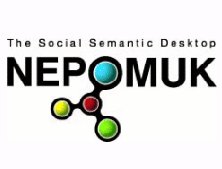 |
|
|
ProgramSunday, 2nd September, 2007. DERI, IDA Business Park, Lower Dangan, Galway 9.00 - 10.00 – Registration 10.00 - 11.00 – Tutorial 1: Dr Sandeep K. Singhal, Director Windows Networking, Microsoft Corporation & Ravi Rao, Senior Program Manager for P2P, Microsoft Corporation. An Overview of the Windows Peer-to-Peer and Collaboration Platform: Building Great Applications using Standard Components Abstract: The Microsoft Windows Peer-to-Peer APIs provide a rich platform for building peer-to-peer applications. Capabilities in the platform include
11.00 - 11.30 – Coffee break 11.30 - 13.00 – Tutorial 1 continued: Dr Sandeep K. Singhal, Director Windows Networking, Microsoft Corporation & Ravi Rao, Senior Program Manager for P2P, Microsoft Corporation. An Overview of the Windows Peer-to-Peer and Collaboration Platform: Building Great Applications using Standard Components 13.00 - 14.00 – Lunch 14.00 - 15.30 – Tutorial 2: Wolfgang Kellerer, Zoran Despotovic, DoCoMo Euro-Labs, Stefan Zoels, Gerald Kunzmann, Technische Universitaet Muenchen. Peer-to-Peer - From basic principles to selected advanced topics. Abstract: Peer-to-Peer (P2P) systems can be regarded as decentralized and self organizing overlay architectures, independent of specific access networks. Self organization makes them robust and flexible to dynamic changes without provider interaction. Their main objective is to support lookup and use of distributed resources. P2P technologies have thus received an increased interest in academia and also in industry in different application areas not only limited to file sharing but also in communication applications such as Skype. The potential of P2P is in the realization of novel applications (user generated content, community based services) and also in applying its principles to use existing resources in a more efficient way to save infrastructure cost. This tutorial explains principles and selected advanced issues of P2P technologies. For the basic principles of Peer-to-Peer (P2P) communications, we are going to explain the concepts and algorithms of unstructured and structured (DHT-based) P2P systems, which are the two main concepts used for resource lookup. Both concepts will be explained and illustrated with examples about analysis, traffic evaluations and applications. In the same way, we will elaborate on algorithms for P2P data delivery (example:BitTorrent). Advanced issues highlight the following selected topics: hierarchical P2P, P2P security, P2P reputation and trust, and mobile P2P. Tutorial outline:
15.30 - 16.00 – Coffee break 16.00 - 17.00 – Tutorial 2 continued: Wolfgang Kellerer, Zoran Despotovic, DoCoMo Euro-Labs, Stefan Zoels, Gerald Kunzmann, Technische Universitaet Muenchen. Peer-to-Peer - From basic principles to selected advanced topics. Monday, 3rd September, 2007. Meyrick Hotel, Eyre Square, Galway 9.00 - 9.15 – Welcome 9.15 - 10.00 – Keynote Timothy Roscoe, ETH Zurich. P2P and the Internet Architecture: Possible Futures 10.00 - 10.30 – Coffee break, Demo Session 1 Ingmar Baumgart, Bernhard Heep and Stephan Krause. A P2PSIP Demonstrator Powered by OverSim 10.30 - 12.00 – Session 1: Overlay Networks Nima Sarshar and Vwani Roychowdhury. An End-to-End Solution to Scalable Unstructured P2P Networking Tallat Shafaat, Ali Ghodsi and Seif Haridi. Handling Network Partitions and Mergers in Structured Overlay Networks Ivan Dedinski, Alexander Hofmann and Bernhard Sick. Cooperative Keep-Alives: An Efficient Outage Detection Algorithm for P2P Overlay Networks 12.00 - 13.30 – Lunch 13.30 - 15.00 – Session 2: Searching and Query Management Marcel Karnstedt, Kai-Uwe Sattler and Roman Schmidt. Completeness Estimation of Range Queries in Structured Overlays Xinyao Hu, Shicong Meng, Cong Shi, Dingyi Han and Yong Yu. Predicting Query Duplication with Box-Jenkins Models and Its Applications Aleksandra Kovacevic, Nicolas Liebau and Ralf Steinmetz. Globase.KOM - A Peer-to-Peer Overlay for Fully Retrievable Location-based Search 15.00 - 16.00 – Coffee break, Demo Session 2 Ulrich Mueller, Matt Young and Alain Gefflaut. Running the Windows P2P Infrastructure on Mobile Phones 16.00 - 17.30 – Session 3: Data Management Jing Tian, Zhi Yang and Yafei Dai. A Data Placement Scheme with Time-Related Model for P2P Storages Gianluca Moro, Gabriele Monti and Stefano Lodi. A Robust Self-Organizing Infrastructure for P2P Data Management in Data-Centric Ad-Hoc Sensor Networks Dongmei Jia, Wai Gen Yee, Linh Nguyen and Ophir Frieder. Distributed, Automatic File Descriptor Tuning in Peer-to-Peer File-Sharing Systems 18.00 - 20.00 – Reception Tuesday 4th September, 2007. Meyrick Hotel, Eyre Square, Galway 9.00 - 9.45 – Keynote Karl Aberer, EPFL. Peer-to-Peer Information Retrieval 9.45 - 10.15 – Coffee break, Demo Session 3 Boris Mejias, Donatien Grolaux and Peter Van Roy. PEPINO: PEer-to-Peer network INspectOr 10.15 - 12.15 – Session 4: Security, Trust and Reputation 1 Thomas Locher, Stefan Schmid and Roger Wattenhofer. Rescuing Tit-for-Tat with Source Coding Dimitri DeFigueiredo, Balaji Venkatachalam and S. Felix Wu. Bounds on the Performance of P2P Networks Using Tit-for-Tat Strategies Dimitrios Vassilakis and Vasilis Vassalos. Modelling Real P2P Networks: The Effect of Altruism Souvik Ray and Zhao Zhang. An Information-theoretic framework for analyzing leak of privacy in Distributed Hash Tables 12.15 - 13.30 – Lunch 13.30 - 15.00 – Session 5: Overlay Construction Fabien Mathieu. Self-Stabilization in Preference-Based Networks Danny Bickson, Dahlia Malkhi and Lidong Zhou. Peer-to-Peer Rating Matteo Dell'Amico. Mapping Small Worlds Danny Bickson, Roy Borer and Danny Dolev. BitCod - A BitTorrent Client using Network Coding (short paper) 15.00 - 16.00 – Coffee break, Demo Session 4 James Walkerdine, Danny Hughes and Kevin Lee. The Effect of Viral Media on Business Usage of P2P 16.00 - 17.30 – Session 6: Routing Joseph Kong and Vwani Roychowdhury. Price of Structured Routing and Its Mitigation in P2P Systems under Churn Qiang Wang and M. Tamer Ozsu. An Efficient Eigenvalue-based P2P XML Routing Framework Fabius Klemm, Sarunas Girdzijauskas, Jean-Yves Le Boudec and Karl Aberer. On Routing in Distributed Hash Tables Social event 20.00 - 24.00 – Gala Dinner followed by Entertainment Wednesday, 5th September, 2007. Meyrick Hotel, Eyre Square, Galway 9.00 - 9.45 – Keynote Wolfgang Kellerer, NTT DoCoMo Euro-Labs. The Bright Future of P2P: a Telecom Operator's Perspective 9.30 - 10.00 – Coffee break, Demo session 5 Tobias Heer, Shaohui Li and Klaus Wehrle. PISA: P2P Wi-Fi Internet Sharing Architecture 10.00 - 12.00 – Session 7: Security, Trust and Reputation 2 Marlom Konrath, Marinho Barcellos and Rodrigo Mansilha. Attacking a Swarm with a Band of Liars: evaluating the impact of attacks on BitTorrent Anna Satsiou and Leandros Tassiulas. A Trust-Based Exchange Framework for Multiple Services in P2P Systems Cristiano Costa and Jussara Almeida. Reputation Systems for Fighting Pollution in Peer-to-Peer File Sharing Systems Liang Xie and Sencun Zhu. A Study on Defending Against Ultra-Fast Topological Worms 12.00 - 13.30 – Lunch 13.30 - 15.00 – Session 8: Services and Applications Michael Duelli, Tobias Hoßfeld and Dirk Staehle. Impact of Vertical Handovers on Cooperative Content Distribution Systems Xiaoyu Yang and Yiming Hu. A DHT-based Infrastructure for Content-based Publish/Subscribe Services Deger Cenk Erdil and Michael J. Lewis. Grid Resource Scheduling with Gossiping Protocols 15.00 - 15.30 – Coffee break 15.30 - 17.30 – Session 9: Short papers Piotr Karwaczynski. Fabric: Synergistic Proximity Neighbour Selection Method Danny Bickson, Roy Borer and Danny Dolev. BitCod - A BitTorrent Client using Network Coding Ravi Rao and Sandeep Singhal. P2P-IM: A P2P Presence System for the Internet Qi Zhang, Marco Piumatti and Sandeep Singhal. Private Peer-to-Peer Overlay for Real-Time Monitoring of a Deployed Internet-Scale Peer-to-Peer Overlay Cyrus Harvesf and Douglas Blough. The Design and Evaluation of Route Diversity Techniques in Distributed Hash Tables Bivas Mitra, Sujoy Ghose and Niloy Ganguly. How stable are large superpeer networks against attack?
|

Emerald Sponsors



Platinum Sponsors

Gold Sponsors

Silver Sponsors

